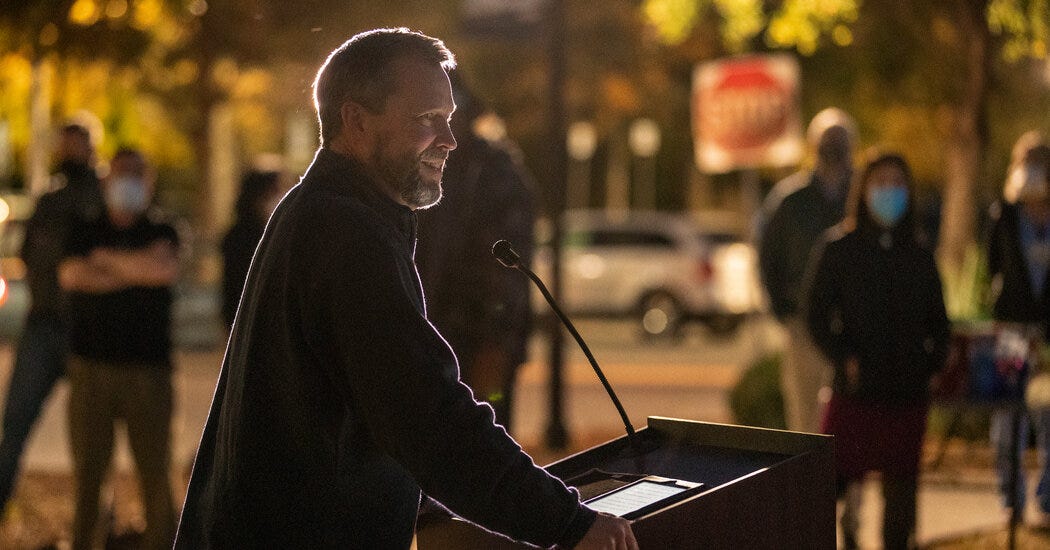When Collegiality Will Not Work
Collegiality has failed ACNA
It is Monday morning after a busy weekend. And so far coffee has failed to revive my creative writing skills, so I will cut to the chase. Collegiality is and has long been a priority of the ACNA College of Bishops. They strive for decisions everyone agrees on or at least can live with. Every decision from them I can remember has been unanimous or presented as such.
Of course, there is more to collegiality than that. Relationships, discussion, and mutual support are among the elements of collegiality. And collegiality should be a goal in church governance. If decision after decision has a sizable minority in opposition and unhappy, one is probably on the way to a church split.
The first ecumenical Council of Jerusalem modeled collegiality in Acts 15. There was “much debate” but guidance from the workings of the Holy Spirit and from particularly reputable men, particularly Peter and James, led the Council to a consensus that “seemed good to the apostles and the elders, with the whole church.” And the letter sent out by the Council had the earmarks of a godly compromise that “seemed good to the Holy Spirit and to us.”
That is an excellent model for how the church should function in disputed and disputable matters. But Scripture also informs us that collegiality is not a cure all. Later in the same chapter we find that Paul and Barnabas had such a sharp personnel decision over John Mark that they found it necessary to go on separate missions. And St. Paul was not exactly collegial in his Epistle to the Galatians.
So part of wise church leadership is knowing when to be collegial and when not. Collegiality, although a noble goal and a desirable method of church governance, will not work in every situation. And it can be a harmful error to try too hard to make what is not compatible somehow compatible and collegial. When Paul saw the Gospel was being corrupted and endangered in Galatia, he got rather uncollegial. When he thought John Mark was not fit for mission, he was not very collegial about that either, although he later had a change of heart about him. (2 Timothy 4:11)
I doubt collegiality is serving the Anglican Church in North America (ACNA) well. For ACNA is an odd pairing of traditional Re-formed Catholic Anglicans (which includes magisterial evangelicals) with the egalitarian evangelical charismatic Church of What’s Happening Now with some liturgy thrown in. And when traditional Anglicans try too hard to be collegial with the Church of What’s Happening Now, it only drags the Anglicans down and ACNA with it.
I think this happened in the selection of Steve Wood as Archbishop of ACNA. Please note that I wrote “think.” I am not privy to the workings of the last Conclave. No bishop broke confidence and told me anything. But below is what I think happened.
There were three or more bishops who stood out as obvious possibilities with excellent reputations. These were traditional, although slightly different flavors of traditional, and, as part of that, firmly opposed women’s ordination to the priesthood. A number of bishops, who support women’s ordination, did not want that. By the way, a number of ACNA dioceses require support of women’s ordination from candidates for bishop. So it is to be expected that at least some of the bishops of these dioceses would insist on that for an Archbishop as well. That likely happened in Conclave.
So for the sake of unity, to avoid a sharply divided election, the more traditional bishops relented, perhaps one or more of the better traditional candidates stepped aside, and the compromise of selecting Steve Wood was eventually agreed to. Again, this is what I think happened in the last Conclave.
Steve Wood was not a very good choice. And the bishops should have known that. Wood signed the George Floyd Letter. It is an open secret that he told clergy that he opposed women’s ordination only later to support it. His parish is, to be blunt, a bit weird in its Charismatic tendencies. And I’ve been told of more (although nothing scandalous).
So the College of Bishops did not have to know about the current accusations against Wood to know that he was not a good choice. And there were good, nay, excellent choices available. But collegiality in Conclave led to what turned out to be a disastrous choice.
I do not write this to beat up on Archbishop Wood. Others are doing quite a job of that already. And, as previously stated, I respect Wood’s choice to take a leave of absence.
ACNA Archbishop Steve Wood Takes a Leave of Absence
Late yesterday afternoon came news that the Archbishop of the Anglican Church in North America (ACNA) Steve Wood is taking a leave of absence from his roles as Archbishop and as the Bishop of the Carolinas while the allegations against him are dealt with.
Instead I seek to point out what has become a hard lesson. The mess ACNA is currently in is a hard lesson that collegiality will not work if there is not enough agreement on what is right and true in the first place. And traditional Anglicans do not have enough agreement with the Church of What’s Happening Now for collegiality to work in the long run . . . or now apparently.
Yes, this is among the reasons I am convinced ACNA needs to be reorganized even if now is not the best moment for that.
——
The lead-in image is NOT of an ACNA conclave. We aren’t quite that cool.


Collegiality must bend the knee to both Christ Jesus and scripture, at a bare minimum.
Anyone who names a diocese ‘the Church of What’s Happening Now” in the Anglican tradition should face disciplinary hearings, just for (1) the name; (2) a non-geographical organization that overlaps with other bishop’s dioceses